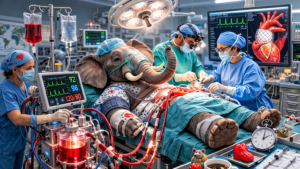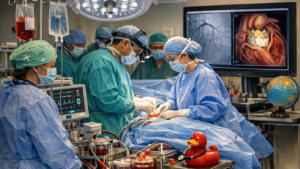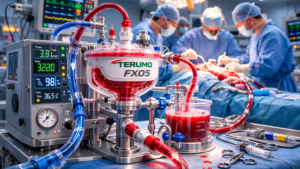Background: Temporary mechanical circulatory support devices (tMCS) are increasingly being used in patients with infarct-associated cardiogenic shock (AMICS). Evidence on patient selection, complications and long-term outcomes is lacking. We aim to investigate differences in clinical characteristics, complications and outcomes between patients receiving no tMCS or either intra-aortic balloon pump (IABP), veno-arterial extracorporeal membrane oxygenation (V-A ECMO) or Impella® for AMICS, with a particular focus on long-term outcomes.
Methods: Using health claim data from AOK-Die Gesundheitskasse (local health care funds), we retrospectively analysed complications and outcomes of all insured patients with AMICS between 1 January 2010 and 31 December 2017.
Results: A total of 39,864 patients were included (IABP 5451; Impella 776; V-A ECMO 833; no tMCS 32,804). In-hospital complications, including renal failure requiring dialysis (50.3% V-A ECMO vs. 30.5% Impella vs. 29.2 IABP vs. 12.1% no tMCS), major bleeding (38.1% vs. 20.9% vs. 18.0% vs. 9.3%) and sepsis (22.5% vs. 15.9% vs. 13.9% vs. 9.3%) were more common in V-A ECMO patients. In a multivariate analysis, the use of both V-A ECMO (HR 1.57, p < 0.001) and Impella (HR 1.25, p < 0.001) were independently associated with long-term mortality, whereas use of IABP was not (HR 0.89, p < 0.001). Kaplan-Meier estimates showed better survival for patients on IABP compared with Impella, V-A ECMO and no-tMCS. Short- and long-term mortality was high across all groups.
Conclusions: Our data show noticeably more in-hospital complications in patients on tMCS and higher mortality with V-A ECMO and Impella. The use of both devices is an independent risk factor for mortality, whereas the use of IABP is associated with a survival benefit.
Keywords: IABP; Impella; V-A ECMO; acute myocardial infarction; cardiogenic shock; mechanical circulatory support; outcome.







